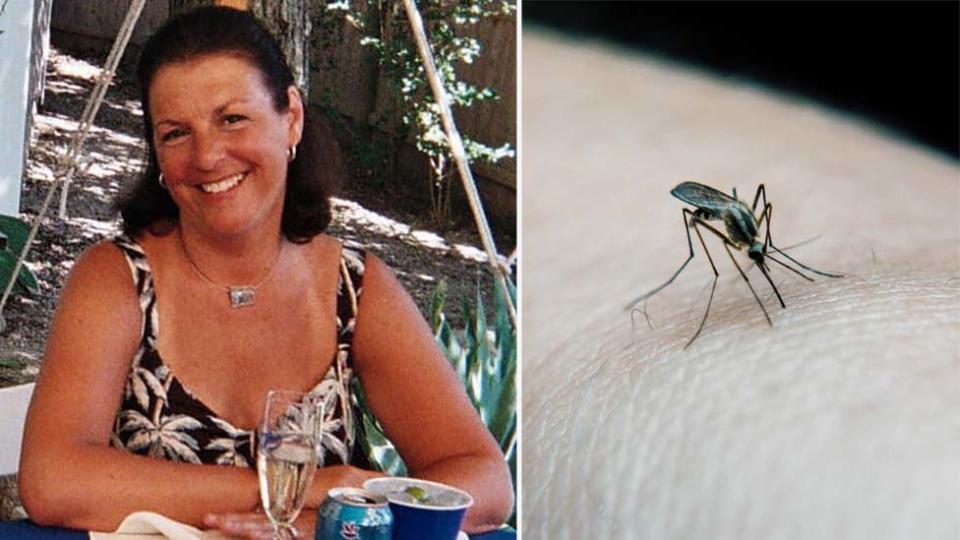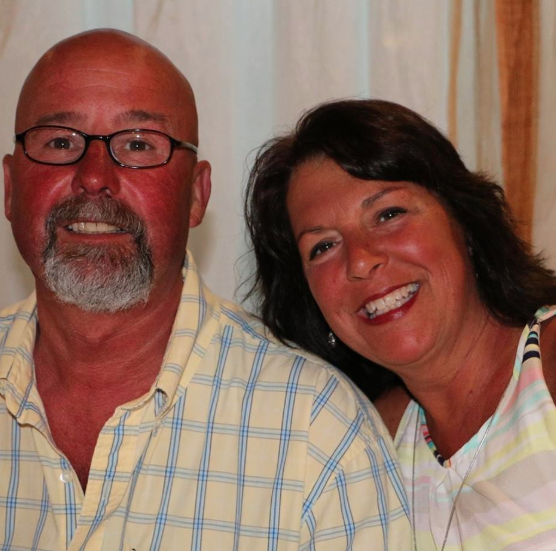Mother of three dies after being bitten by mosquito
A Massachusetts mother of three has died after contracting a rare mosquito borne illness known as Eastern Equine Encephalitis (EEE).
On August 19, Laurie Sylvia began feeling unwell and went to the hospital. According to her husband of 40 years, Robert Sylvia Jr., her health rapidly deteriorated until her death six days later at Tufts Medical Centre in Boston.
The Massachusetts Department of Health confirmed in a news release that Ms Sylvia’s death was caused by EEE, making her the fourth confirmed case in the state this month.
According to CNN, three men have also been infected with the brain-swelling virus; two men over the age of 60 and another under the age of 30. The last known case of EEE in the state was in 2012.

“She would be there for anyone at anytime. Her smile was contagious. Her jokes were priceless. She was the life of the party. She knew how to have fun and taught me how important it was to love with all you’ve got and live life to the fullest,” Sylvia’s daughter Jen wrote in a Facebook tribute to her mother.
“She was the best Mimi anyone could ask for. I am grateful for the memories my children will carry. She was such a beautiful soul. I don’t know where to go from here. I just don’t understand how such a beautiful person could be taken from me so soon. I wasn’t done.”

The Centres for Disease Control and Prevention (CDC) reports that less than 10 cases of EEE are reported in the United States each year, typically occurring along the eastern or Gulf Coast states. While horses are also susceptible to the Eastern equine encephalitis virus (EEEV), humans infected develop 4-10 days after the transmission of the virus through a bite from an infected mosquito.
Although rare, the infection is a serious medical issue, with a mortality rate of approximately 30 percent, with survivors suffering from ongoing neurological problems.
Symptoms of EEE
After the virus incubation period, there is an abrupt onset of symptoms including chills, fever, lethargy, headaches, muscle aches, neck stiffness and vomiting.
According to Boston Children’s Hospital, symptoms for encephalitis depend largely on the part of the brain that is inflamed, the age of the patient and other health factors. Symptoms may progress to include seizures, disorientation and coma.
Death can occur anywhere between two to 10 days after symptom onset. For those who survive, many experience long term neurological effects such as seizures, paralysis, cranial nerve or brain dysfunction, as well as severe intellectual impairment. The CDC reports that those with severe conditions following EEE often die a few years after infection.
Who is at risk?
Residents of areas where there have been known cases of EEE are at risk, including those who live in coastal or Gulf Coast areas of the United States.
People who spend time outdoors for work or recreational activities in areas at risk for EEE have a greater risk of contracting the infection, especially those under 15 and over 50.
Prevention
Insect repellant with DEET, Picaridin, IR3535 or oil of lemon eucalyptus are the best tools of defence against mosquito bites.
The Massachusetts Department of Health recommends avoiding outdoor activities during peak mosquito hours (the hours from dusk to dawn) when insects are most active, as well as wearing long shirts, pants and socks when outdoors.
Protecting your home and ensuring that all screens on windows and doors are tight fitting without holes is also key to avoiding infection. Limit standing water on your property, draining unused pools and refreshing birdbaths frequently.
Do you have a story tip? Email: newsroomau@yahoonews.com.
You can also follow us on Facebook, download the Yahoo News app from iTunes or Google Play and stay up to date with the latest news with Yahoo’s daily newsletter. Sign up here.

